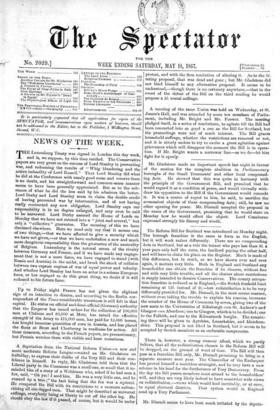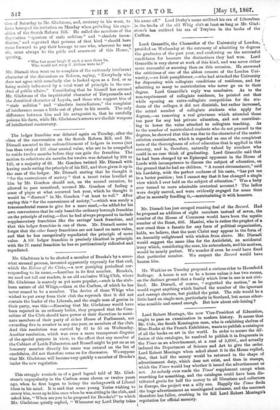Mr. Disraeli seems to have been much irritated by the
deputa- diaries," and regretted that persons of that kind " should have come forward to pay their homage to one who, wherever he may sit, must always be the pride and ornament of this House," quoting,
" Who but must laugh if such a man there be, Who would not weep if Atticus were he?"
Mr. Disraeli then went on to complain of the extremely intolerant character of the discussions on Reform, saying, " Everybody who does not agree with somebody else is looked upon as a fool, or as being mainly influenced by a total want of principle in the con- duct of public affairs." Considering that he himself has accused Mr. Gladstone of the inquisitorial character of Torquemada and the Jesuitical character of Loyola, and those who support him of " stale sedition " and " absolute incendiarism," the complaint of intolerance seems a little out of place in his mouth. The only difference between him and his antagonist is, that he carefully poisons his darts, while Mr. Gladstone's arrows are the fair weapons -of intellectual controversy.































 Previous page
Previous page